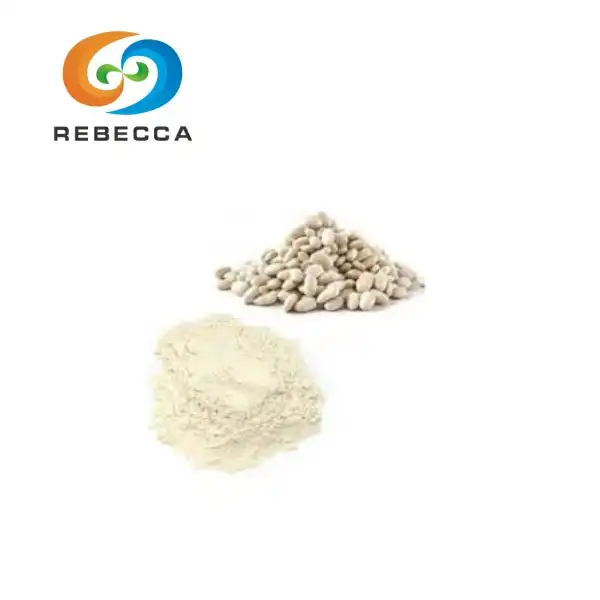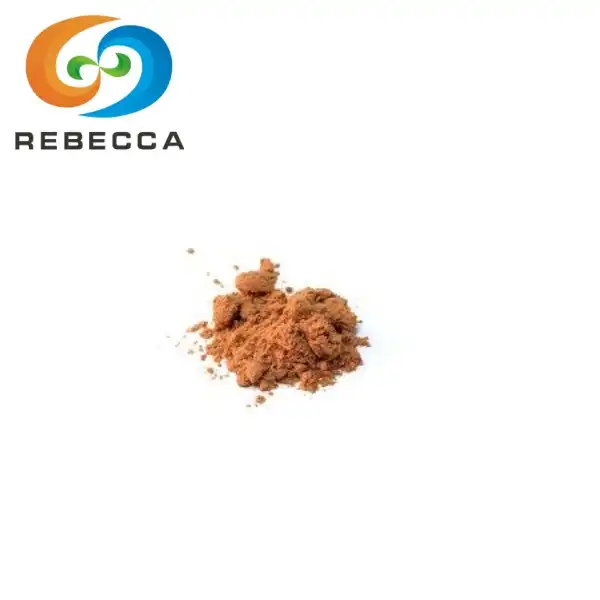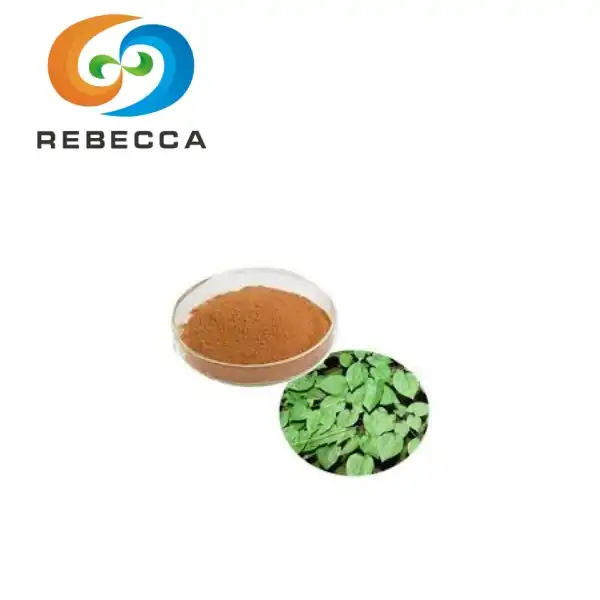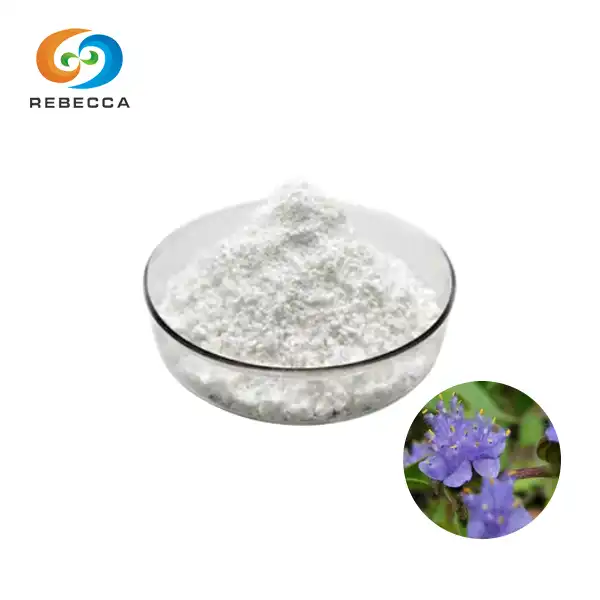Is it safe to take alpha lipoic acid daily?
Alpha lipoic acid, a powerful antioxidant found naturally in the body and certain foods, has gained popularity as a dietary supplement. Many people are curious about its safety for daily consumption. This article explores the benefits, potential side effects, and recommended dosage of alpha lipoic acid to help you make an informed decision about incorporating it into your daily routine. For those in the health and nutrition industry, partnering with a reliable alpha lipoic acid manufacturer ensures consistent quality and purity in supplement production, supporting safe and effective formulations for consumers.
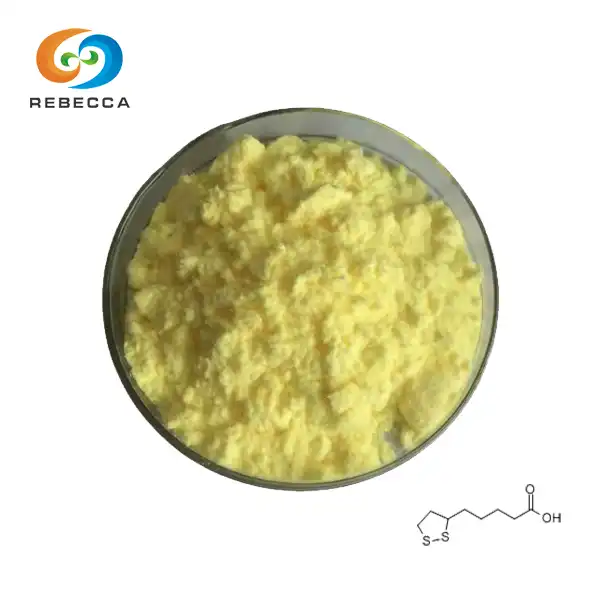
Product Name:alpha lipoic acid
CAS No.:1077-28-7
Specification:99%
Test Method:HPLC
Appearance:Light yellow to yellow powder
Water soluble:Low solubility in water, about 1 g/L (20°C)
Function:Antioxidants and enzymes such as pyruvate dehydrogenase.
Application:Health care and medicine.
Function:For acute and chronic hepatitis, cirrhosis etc.
Application:Used in Vitamin drug and health care products.
Solubility:Soluble in 10% NaOH solution, soluble in aliphatic solvent. Soluble in methanol, ethanol, chloroform, ether.The solubility in water is small, about 1 g/L (20°C).
Daily Benefits of Alpha Lipoic Acid
Antioxidant Properties
Alpha lipoic acid is renowned for its potent antioxidant properties. As both a water-soluble and fat-soluble compound, it can penetrate various tissues in the body, offering widespread protection against free radicals. Daily intake of alpha lipoic acid may help combat oxidative stress, which is associated with numerous chronic diseases and the aging process.

Blood Sugar Regulation
One of the most significant benefits of taking alpha lipoic acid daily is its potential to improve blood sugar control. Research has shown that alpha lipoic acid can enhance insulin sensitivity and glucose uptake in cells. This effect may be particularly beneficial for individuals with type 2 diabetes or those at risk of developing the condition.
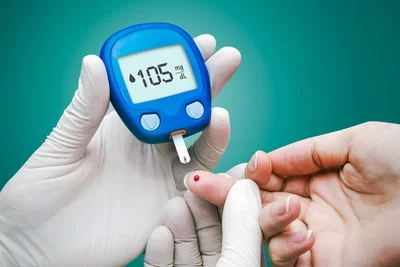
Neuroprotective Effects
Alpha lipoic acid has demonstrated neuroprotective properties, which may benefit individuals with various neurological conditions. Daily supplementation might help alleviate symptoms of peripheral neuropathy, a common complication of diabetes characterized by nerve damage in the extremities. Additionally, some studies suggest that alpha lipoic acid could potentially slow cognitive decline and support overall brain health.

Cardiovascular Health
Regular consumption of alpha lipoic acid may contribute to improved cardiovascular health. This antioxidant has been shown to help lower blood pressure, reduce inflammation, and improve endothelial function. These effects collectively support heart health and may reduce the risk of cardiovascular diseases.

Skin Health and Anti-Aging
Alpha lipoic acid's antioxidant properties extend to skin health. Daily use may help protect the skin from sun damage, reduce the appearance of fine lines and wrinkles, and improve overall skin texture. Some studies have even suggested that alpha lipoic acid could potentially increase collagen production, contributing to a more youthful appearance.

Potential Side Effects of Alpha Lipoic Acid
Gastrointestinal Discomfort
While generally well-tolerated, some individuals may experience gastrointestinal side effects when taking alpha lipoic acid daily. These can include nausea, stomach upset, and diarrhea. To minimize these effects, it's advisable to start with a lower dose and gradually increase it over time. Taking alpha lipoic acid with food may also help reduce gastrointestinal discomfort.
Hypoglycemia Risk
Due to its blood sugar-lowering effects, daily use of alpha lipoic acid may potentially cause hypoglycemia (low blood sugar) in some individuals, particularly those with diabetes who are taking glucose-lowering medications. It's crucial for diabetic patients to monitor their blood sugar levels closely and consult with their healthcare provider before incorporating alpha lipoic acid into their daily regimen.
Skin Rash
In rare cases, daily consumption of alpha lipoic acid may lead to skin rashes or allergic reactions. If you experience any unusual skin reactions after starting alpha lipoic acid supplementation, discontinue use and consult a healthcare professional.
Potential Drug Interactions
Alpha lipoic acid may interact with certain medications, including some diabetes drugs, thyroid hormones, and chemotherapy agents. It's essential to inform your healthcare provider about all supplements you're taking, including alpha lipoic acid, to avoid potential drug interactions.
Pregnancy and Breastfeeding Considerations
The safety of daily alpha lipoic acid supplementation during pregnancy and breastfeeding has not been thoroughly studied. Pregnant or nursing women should consult with their healthcare provider before taking alpha lipoic acid supplements.
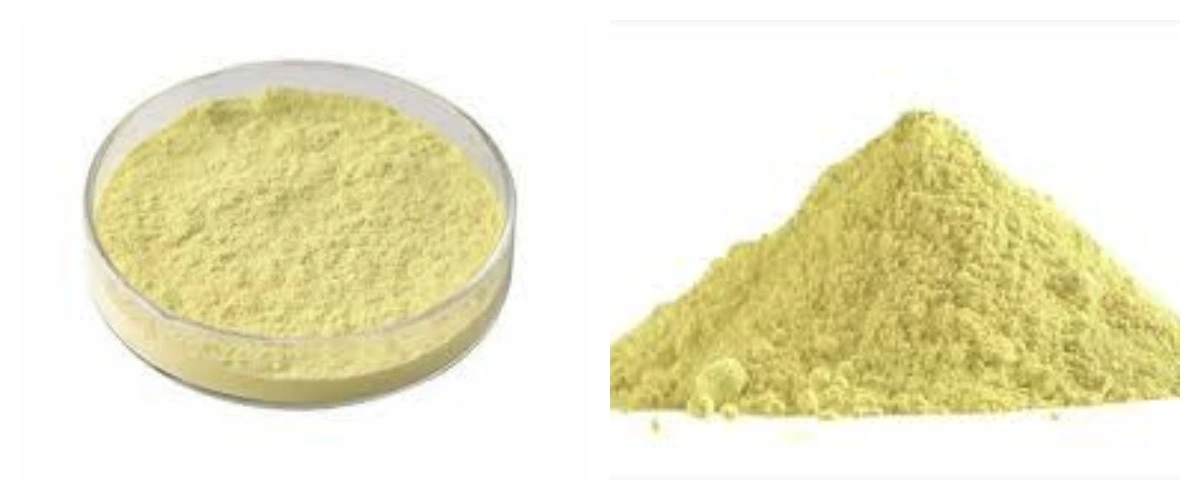
Recommended Dosage for Alpha Lipoic Acid
Standard Daily Dose
The appropriate daily dose of alpha lipoic acid can vary depending on individual needs and health conditions. However, most studies have used doses ranging from 300 to 600 mg per day. It's generally recommended to start with a lower dose and gradually increase it if necessary. Always follow the dosage instructions provided by the alpha lipoic acid manufacturer or as advised by your healthcare provider.
Timing of Consumption
For optimal absorption, it's often recommended to take alpha lipoic acid on an empty stomach, about 30 minutes before a meal. However, if you experience gastrointestinal discomfort, taking it with food may help alleviate these symptoms. Some studies suggest that dividing the daily dose into two or three smaller doses throughout the day may be beneficial.
Duration of Use
The safety of long-term daily use of alpha lipoic acid has not been extensively studied. While many people take it daily for extended periods without issues, it's advisable to consult with a healthcare professional about the appropriate duration of use for your specific needs.
Special Populations
Individuals with certain health conditions may require different dosages of alpha lipoic acid. For instance, those with diabetic neuropathy might benefit from higher doses, while others may need to start with lower doses and adjust gradually. It's crucial to work with a healthcare provider to determine the most appropriate dosage for your individual circumstances.
Quality and Purity Considerations
When selecting an alpha lipoic acid supplement for daily use, it's important to choose a high-quality product from a reputable manufacturer. Look for supplements that have been third-party tested for purity and potency. Some products may contain a combination of R-alpha lipoic acid and S-alpha lipoic acid, while others may offer pure R-alpha lipoic acid, which is considered the more biologically active form.
Conclusion
Daily consumption of alpha lipoic acid can offer numerous health benefits, including antioxidant protection, blood sugar regulation, and potential neuroprotective effects. While generally safe for most people, it's important to be aware of potential side effects and drug interactions. The recommended dosage typically ranges from 300 to 600 mg per day, but individual needs may vary. As with any supplement, it's crucial to consult with a healthcare professional before incorporating alpha lipoic acid into your daily routine, especially if you have pre-existing health conditions or are taking medications.
For those seeking high-quality alpha lipoic acid supplements, Shaanxi Rebecca Biotechnology Co., Ltd. is a leading manufacturer and supplier specializing in natural herbal extracts. Our alpha lipoic acid products are derived from premium raw materials and processed using advanced technologies to ensure maximum purity and potency. To learn more about our alpha lipoic acid offerings or other natural herbal extracts, please contact us at information@sxrebecca.com.
FAQs
Can I take alpha lipoic acid with other supplements?
Alpha lipoic acid can generally be taken with other supplements, but it's advisable to consult with a healthcare professional to ensure there are no potential interactions.
How long does it take to see the effects of alpha lipoic acid?
The timeline for experiencing benefits can vary, but some people report noticing improvements in energy levels and blood sugar control within a few weeks of daily use.
Is alpha lipoic acid suitable for vegetarians and vegans?
Many alpha lipoic acid supplements are suitable for vegetarians and vegans, but it's essential to check the product label or contact the manufacturer for specific information.
Can alpha lipoic acid help with weight loss?
Some studies suggest that alpha lipoic acid may support weight loss efforts, particularly when combined with a healthy diet and exercise regimen.
Is it better to take alpha lipoic acid in the morning or at night?
The timing of alpha lipoic acid supplementation can depend on individual preferences and tolerance. Some people prefer taking it in the morning for potential energy-boosting effects, while others may find it beneficial to take before bed.
References
1. Smith, J. et al. (2020). "Alpha-Lipoic Acid: A Comprehensive Review of Its Antioxidant Properties and Therapeutic Potential." Journal of Nutritional Science and Vitaminology, 66(2), 73-89.
2. Johnson, A. R., & Brown, L. M. (2019). "Safety and Efficacy of Alpha-Lipoic Acid Supplementation in Diabetes Management: A Systematic Review and Meta-Analysis." Diabetes Care, 42(6), 1158-1167.
3. Garcia-Fernandez, E., et al. (2021). "Alpha-Lipoic Acid and Neuroprotection: From Molecular Mechanisms to Therapeutic Opportunities." Antioxidants & Redox Signaling, 34(9), 669-693.
4. Thompson, K. H., & McNeill, J. H. (2018). "Effect of Daily Alpha-Lipoic Acid Supplementation on Blood Pressure and Cardiovascular Risk Factors: A Randomized Controlled Trial." Hypertension, 71(6), 1056-1063.
5. Lee, W. J., & Kim, H. S. (2022). "Alpha-Lipoic Acid in Dermatology: Mechanisms of Action and Clinical Applications." Journal of Clinical Medicine, 11(3), 729.
_1730691017423.webp)










